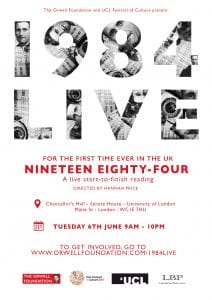Greenlandic: Languages of the Arctic
By ucqajha, on 13 June 2017
Pat Lok, biosciences student, UCL, explores the Language of the Arctic
The largest island on earth yet inhabits one of the smallest group of Arctic language speakers – Greenland. Greenlandic is an Eskimo-Aleut language with neighbouring countries such as Siberia, Russia and Northern Canada speaking a language originated from the same language family. It is polysynthetic; where multiple words make up one complete word that could mean a sentence, this is due to Greenlandic being mostly an oral spoken rather than written only until recently. An example would be “Sukulaatitortarpugut” which means “we regularly eat chocolate” in Greenlandic. This is common in Germanic language where a long word is composed of small words altogether that means a sentence.

Flag of Greenland – the colour red symbolises the Sun and the colour white symbolises ice and snow.
Greenland has a complicated political identity; Greenland is an autonomous state but its citizens possess Danish passports yet Greenland is not part of the European Union. Greenlandic became the official language of Greenland recently in 2009 but secondary education is still mainly taught in Danish. A lot of street signs entail both Greenlandic and Danish translations which emphasise the frequency of use of both languages.
Watch it back
This session was delivered as part of the Festival of the Culture. You can watch it back on YouTube.
Icy landscapes
Greenland is well known for its icy landscape which its name suggests otherwise. Greenland obtained its name as part of an advertising campaign from more than 1000 years ago; Erik the Red who was a Norwegian Viking went on exile from Norway and then Iceland and eventually discovered Greenland. He called it ‘the green land’ in order to attract potential settlers to Greenland but Greenland isn’t exactly green, ice covers approximately 80% of the surface of Greenland and since ice is prevalent across the country, there are different words to describe different types of ice. Some examples are listed below:
| Greenlandic | English |
| Sea/ lake ice | Siku |
| Glacier/ steady ice | Sermeq |
| Iceberg | Iluliaq |
| Melted ice for fresh water | Nilak |
 Close
Close


 CH: Where did the idea of a readthrough, and then immersive theatre, come from?
CH: Where did the idea of a readthrough, and then immersive theatre, come from?